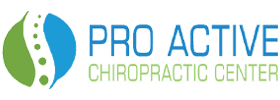Acupuncture can help sciatica by helping the muscles to relax around the nerve, and to decrease the sciatic nerve pain.
Acupuncture can help back pain by stimulating different points in the body that will increase the body's own pain-relieving chemicals and to help decrease muscle spasms.
Acupuncture can help tinnitus by stimulating local points around the ear to help increase blood circulation and stimulating the nerves around the ear.
Acupuncture can help lower back pain by stimulating local points around the lower back to decrease muscle spasms and to decrease pain. Distal points can also be used to decrease the pain and help the lower back to heal.
Acupuncture can help plantar fasciitis with several different points in the heel and around the foot. Ashi points are also used to help decrease pain.
Acupuncture has been shown to help carpal tunnel by stopping the wrist pain, finger numbness, and increase fine motor control of the fingers.
Acupuncture can help nerve pain in several ways. Acupuncture helps to increase blood flow and circulation to help heal the damaged nerves.
Yes, Acupuncture can help neuropathy. Acupuncture helps to get the Qi-energy moving in the body better to help the body get stranger and heal. It also stimulates blood flow that helps to regenerate the damaged nerves.
Acupuncture can help migraines. In fact, there have been at least 22 different research studies involving 4,985 people on the effects of acupuncture and migraines. The frequency of the headaches dropped by 50% for more than half of the migraine sufferers and the effects lasted 6 months.
Acupuncture can help to ease arthritis pain by balancing the QI (energy) in the different meridians of the body, and by also stimulating the nerves and helping with better blood circulation.
Yes, Acupuncture can help back pain. In fact, it is the #1 reason that many patients seek acupuncture treatment.
Acupuncture has been researched to be shown as safe and effective to help lateral epicondylitis (otherwise know as Tennis Elbow).
Acupuncture can help with piriformis syndrome by getting the muscle spasms to relax and that helps take the pressure off of the sciatic nerve.
Yes, most of our patients report that after doing acupuncture they sleep much better and feel more rested the next day.
Yes, Acupuncture has been shown to be extremely effective at treating tendonitis. Acupuncture can help by reducing muscle spasms and decreasing the pain.
Yes, acupuncture can help frozen shoulders. Acupuncture can help to increase the range of motion in the frozen shoulder and also decrease the pain that is normally associated with it.
Yes, acupuncture does help sinus issues. One of the first things it does is to reduce congestion, and that helps to relieve pressure and pain on the sinuses.
Acupuncture can help vertigo by stimulating different parts of the brain that help with maintaining balance. Increasing blood flow, increasing endorphins that help with pain relief, stimulating different nerves, reducing inflammation, and increasing local microcirculation that helps with decreasing swelling in the inner ear canal.
Acupuncture helps with fibromyalgia in a few different ways. Acupuncture is great for chronic pain so it helps that aspect of fibromyalgia. Acupuncture also helps with muscle tightness and pain. It also helps improve your well being.
Acupuncture has been shown to help with pain, and many digestive issues including bloating, abdominal pain, and diarrhea.
Yes, Acupuncture is very good at relieving back pain. It is actually the #1 reason that many patients seek acupuncture care. Acupuncture helps with the pain, inflammation, and tight muscles.
Acupuncture has been shown to help arthritis by decreasing chronic pain, decreasing inflammation, and reducing muscle spasms.
Acupuncture has been shown to help improve sleep quality. Many of our patients often report that they sleep much better after an acupuncture treatment. Acupuncture has also been shown to reduce anxiety and that is closely linked to insomnia.
If you are already fatigued then acupuncture could make you tired. However, normally patients have more energy after an acupuncture treatment and then they do sleep better that night.
There is a lot of evidence to show that acupuncture can help eczema. It helps to reduce the itching and inflammation which also lets your body heal faster.
Acupuncture has been shown to help with loudness and the severity of tinnitus. Acupuncture has also been shown to help chronic non-pulsatile tinnitus.
Acupuncture has a calming effect on the nervous system. Most patients notice a significant reduction or complete resolution in their anxiety with acupuncture.
Research studies have shown that acupuncture is very effective at reducing tension and migraine-type headaches. Acupuncture has also been shown to reduce chronic pain.
Acupuncture has shown by several studies to be effective at reducing migraine headaches. Acupuncture works by helping energy flow better through the body, reducing muscle spasms, and decreasing pain and inflammation.
Acupuncture is very relaxing. Acupuncture is calming to the body and helps you to relax and chill out. Acupuncture has been shown to be very effective in helping stress and anxiety.
Acupuncture is a gentle, non-evasive, safe, and effective way to deal with the symptoms of menopause. Acupuncture helps menopausal symptoms by balancing hormones, decreasing insomnia, and irritability. Acupuncture also helps to reduce hot flashes and help you sleep better.



